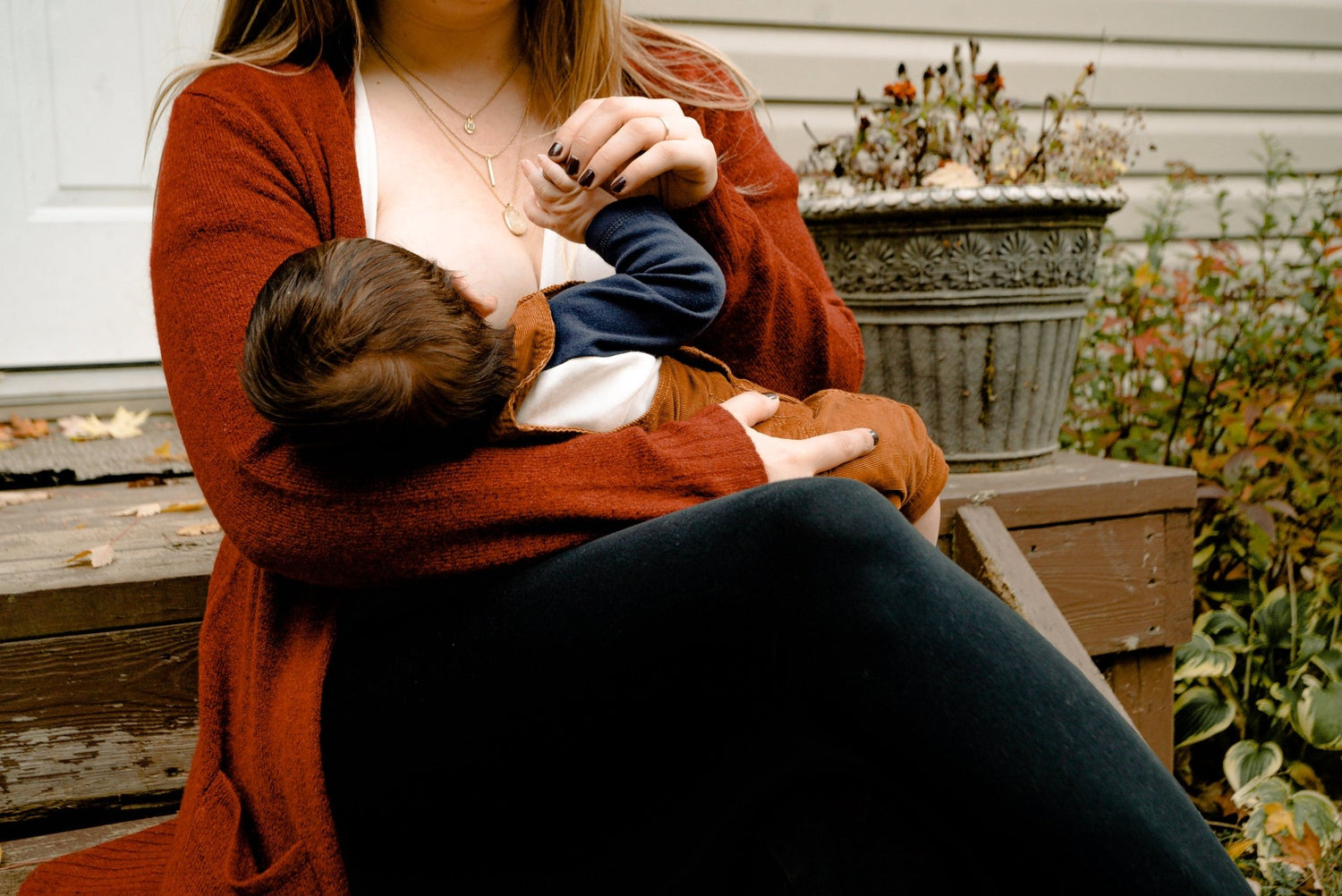Your baby isn't sleeping? Prevent sleep problems
Fortunately, serious sleep problems in babies or even sleep disorders are very rare, but sleep difficulties can still be a real challenge. Your baby isn't sleeping and you're wondering why? Then be sure to read on. This article highlights the most common reasons babies may have trouble sleeping and how to deal with and prevent these sleep challenges.
| Table of contents: |
1. The most common reasons for sleep problems
There are numerous factors that can affect your baby's sleep. These include obvious reasons such as hunger, discomfort and waking times that are not age-appropriate, but also phases such as teething, separation anxiety, growth and development spurts. Every baby also has their own individual sleep needs, which they need to get through the day in a good mood and to develop splendidly. Waking times that are not age-appropriate is the most common reason for difficulty sleeping, whether falling asleep, staying asleep or staying asleep.
2. Your baby’s individual sleep needs

It's important to understand how much sleep your baby needs at different ages. The need for sleep changes regularly, especially in the first year of life: daytime naps become fewer and the duration of nighttime sleep can also change.
Newborns usually sleep up to 18 hours to 24 hours, and by the end of the first month it is only 16 hours. Over the course of the first year of life, the need for sleep per 24 hours drops to 14-15 hours. At two years old it averages 12-13 hours. The sleep requirements are always average values. Look at them as such and don't get too rigid, because your need for sleep can fluctuate, especially during developmental spurts and/or colds.
3. How do I find out my baby's sleep needs?
The best time to get an overview of your baby's sleeping behavior is from the 5th to 6th. Create month of life after the developmental spurt around the 4th month of life has been achieved. If you know your baby's individual sleep needs, you can offer sleep in a timely manner and ensure that your baby sleeps better overall, because overtiredness is also a very common reason for sleep difficulties
Follow these steps to determine your baby's sleep needs:
- Step 1: Keep notes
- Step 2: Evaluate time and mood
Then calculate all hours of sleep over a 24-hour time frame and average them. You then do the same with day and night sleep.
Then see how your baby is during the waking phases. Happy Baby is a sign of enough sleep. A baby who is visibly unhappy can be a sign of overtiredness. Also pay attention to how the sleep accompaniment works. If your baby cries, resists sleep even though he is visibly tired and generally takes a long time to fall asleep, it may be because your baby is overtired.
- Step 3: Change
Once you have the average values, you can compare them with your baby's values. As already mentioned, it can happen at times that your baby's sleep needs are higher or lower. So be sure to pay attention to all circumstances, not just numbers.
If you now notice that your baby sleeps significantly less than average, your sleep companion is teary and your baby often seems unbalanced, offer sleep a little earlier.
4. Typical phases with sleep problems
At times, your baby will sleep restlessly, wake up more often or more easily, and have difficulty falling asleep. Your baby develops rapidly and continuously, especially in the first year of life.
Teething
The first milk teeth appear between the ages of 6 and 8 months on average. The two lower incisors are the start. Between 2.5 and 3 years of age, the milk teeth with their 20 teeth are usually complete. A fairly long period of time during which the gums can be red and swollen, the children produce more saliva and can put pretty much anything in their mouths. Sleep can also suffer.
Coolness and counter pressure, such as a cooled teething ring, help wonderfully. A gentle gum massage with a cooling gel can be just as soothing as intensive cuddling or more frequent breastfeeding. Drinking more in general can help in this phase.
Separation anxiety
Separation anxiety sets in around 8 months of age. Your baby then understands that you can go away and the baby will then be alone. That can be quite scary. Many babies also want more physical contact during sleep during this phase. They suddenly want to fall asleep in your arms again or wake up more often during the night because they want to be very close to their mother. This development may be stressful for you because you will be asked physically (again), but this closeness is very important for your baby's development.
Developmental spurts
During developmental spurts, your baby learns a new skill particularly intensively. This often has an impact on sleep, whether falling asleep or staying asleep, your baby's world is turned upside down. Suddenly he can sit up or stand up...that gives a completely different perspective. Of course, the new skill must then be continued to be practiced while sleeping. Who knows if she will still be there when she wakes up. Give your baby enough time to practice new things during the waking phase. If your baby has practiced enough, the urge to continue practicing while sleeping will become less and less. Long strolls in the stroller may need to be temporarily shortened so that your baby can practice crawling or turning.
Even during developmental spurts, the need for closeness and food intake (even at night) can be higher than usual. Definitely give in to this. Your baby needs both for his development.
5. Prevent sleep problems
There are a few things you can do in everyday life to improve your baby's sleep and thus prevent sleep difficulties.
- Time for exercise: whether on the playmat, playground or free exploration. The movement tank must be properly filled during the day
- Get out into the fresh air: Daylight promotes the production of the happiness hormone serotonin, which in turn is necessary to produce enough of the sleep hormone melatonin. So give yourself enough time in daylight, especially in the dark season
- Exclusive mom (and dad) time: create conscious times with your child. Without distraction, without tidying up at the same time... You can't be completely there for your child all the time, so these exclusive moments that fill the closeness tank are all the more important, because closeness means security and security is important in order to be able to relax and sleep well.
All love,
Anna
Guest post by Anna from Traumnaechte:
Instagram: dream nights
Website: https://www.annaguenther.de/





